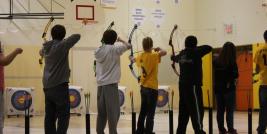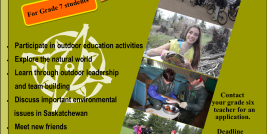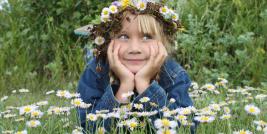Winter Survival
Winter Survival is a 60 minute classroom presentation designed to demonstrate to students some of the techniques and skills that could be used in a winter survival situation.
Survival Topics Include:
- Car Survival
- Home Survival
- Ice and Cold Water Emergencies
- Lost in the Woods
- Hypothermia and Frostbite
Length of presentation: 60 minutes
No set up required
Novels Related to Wilderness Survival
By Gary Paulson - Brian's Winter
By Will Hobbs - Far North
By Farley Mowat - Lost In the Barrens
By Walt Morey - Canyon Winter
Curriculum Connections |
Outcomes |
Indicators | |
Grade 6 |
Phys Ed |
PE6.1 Create and implement a personal health-related fitness plan targeting the health-related fitness component of cardiovascular endurance that involves setting a goal for improvement, applies the F.I.T.T. principle (Frequency, Intensity, Type of activity, and Time), and incorporates daily moderate to vigorous movement activity. |
c |
|
|
Phys Ed |
PE6.2 Demonstrate an understanding of the impact of inactivity on body composition and how to make healthy choices for a balanced self, including regular participation in movement activity, that effectively and safely affect (maintain, increase, decrease) body fat composition. |
f,i,j |
|
|
Phys Ed |
PE6.9 Make situational decisions (individual, partner, and team) related to the selection of skills, tactics, and strategies to enhance individual and team performance while participating in:
|
b |
|
|
Phys Ed |
PE6.10 Apply controlled use of selected movement skills and variations (i.e., locomotor, non-locomotor, and manipulative skills) as well as safe and environmentally friendly behaviours while participating in a variety of:
|
c,e |
|
|
Phys Ed |
PE6.13 Analyze and apply safety guidelines and rules that apply to the target games, invasion/territorial games, and alternate environment activities to develop an appreciation of their impact on self and others. |
d |
|
|
Health |
USC6.4 Assess and demonstrate strategies used to identify and make healthy decisions in stressful situations. |
c,d,g |
| Grade 7 |
Phys Ed |
PE7.2 Examine personal daily nutritional habits and fluid intake practices that support healthy participation in various types of movement activities and the attainment or maintenance of healthy body weight and body composition. |
c,g |
| Phys Ed |
PE7.12 Analyze and apply the safety guidelines and rules related to net/wall games, striking/fielding games, low-organizational and inventive games, alternate environment activities, and body management activities to develop an appreciation of their impact on self and others. |
d |
|
| Phys Ed |
PE7.13 Role model and practise the behaviours associated with demonstrating responsibility and caring for others to support personal growth in making positive connections while participating in movement activities. |
d |
|
| Health |
USC7.1 Establish and use strategies to commit to and act upon personal standards (see grade 6) for various aspects of daily living over which an individual has control. |
b |
|
| Grade 8 | Phys Ed |
PE8.8 Apply and adapt selected activity-related skills (e.g., carrying, paddling, gripping, hanging, wheeling, digging, fire building, snow ploughing, compass reading) and strategies required for participation in alternate environment activities (e.g., backpacking, hiking, cycling, overnight camping, canoeing, snowshoeing, wall climbing, in-line skating, skate boarding, cross-country skiing, tracking, roping, dog sledding, skating, orienteering, downhill skiing, tobogganing, quinzhee building). |
a,i,j |
| Phys Ed |
PE8.12 Demonstrate the skills required to administer basic first aid (e.g., scene management, seeking help, treating minor injuries, applying precautions for body fluids) required as a result of injury caused by participation in movement activities. |
a,b,c,d,e,f |





